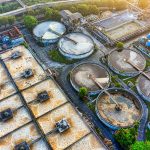- The Potential of Waste Heat Recovery in Birmingham
- Integrated District Energy Systems: A Blueprint for Sustainability
- Collaboration for a Greener Future
- Benefits of Sustainable Urban Energy Solutions
- Conclusion
Title: Harnessing Waste Heat for Sustainable Urban Energy in Birmingham
In today’s world, climate change and environmental degradation have reached a critical point, leading to a growing emphasis on sustainable energy solutions. Birmingham, a bustling metropolitan city in the heart of the United Kingdom, is one such place that is taking steps towards addressing its energy needs through innovative means. One such initiative gaining traction is the concept of harnessing waste heat to generate sustainable urban energy. This approach not only helps in reducing greenhouse gas emissions but also contributes to the city’s goal of becoming more energy-efficient and environmentally friendly.
The Potential of Waste Heat Recovery in Birmingham
Birmingham, like many urban areas, generates a significant amount of waste heat through various processes such as industrial operations, transportation, and residential activities. This waste heat, if left unutilized, contributes to increased energy consumption and greenhouse gas emissions. However, with the right technologies and infrastructure in place, this excess heat can be captured, converted, and utilized to power homes, businesses, and other facilities, thereby reducing the reliance on traditional energy sources.
Integrated District Energy Systems: A Blueprint for Sustainability
One of the key strategies being explored in Birmingham to enhance energy efficiency and sustainability is the implementation of integrated district energy systems. These systems involve capturing waste heat from industrial sources, power plants, and other facilities and utilizing it to provide heating and cooling for buildings in the vicinity. By centralizing energy production and distribution, district energy systems can significantly reduce energy losses and improve overall efficiency.
Collaboration for a Greener Future
To successfully transform Birmingham’s waste heat into a valuable resource for sustainable urban energy, collaboration between the government, businesses, and the community is crucial. Government support in the form of policies, incentives, and regulations can create a conducive environment for sustainable energy projects to thrive. Businesses can play a pivotal role by investing in waste heat recovery technologies and integrating them into their operations. Community engagement and awareness campaigns can help foster a culture of sustainability and encourage individuals to adopt energy-efficient practices in their daily lives.
Benefits of Sustainable Urban Energy Solutions
The adoption of sustainable urban energy solutions, such as waste heat recovery, offers a multitude of benefits for Birmingham and its residents. Not only does it reduce the city’s carbon footprint and reliance on fossil fuels, but it also enhances energy security, improves air quality, and creates new opportunities for economic growth and job creation. By embracing innovative energy technologies and practices, Birmingham can position itself as a leader in sustainable urban development and set an example for other cities to follow.
Conclusion
In conclusion, the transformation of Birmingham’s waste heat into sustainable urban energy represents a significant step towards building a greener, more resilient city. By harnessing the power of waste heat through initiatives like integrated district energy systems and fostering collaboration among stakeholders, Birmingham is paving the way for a more sustainable future. With a collective commitment to sustainability and innovation, Birmingham can create a model urban environment that balances economic growth with environmental stewardship. Let’s harness the heat and power a brighter tomorrow for Birmingham and beyond.



